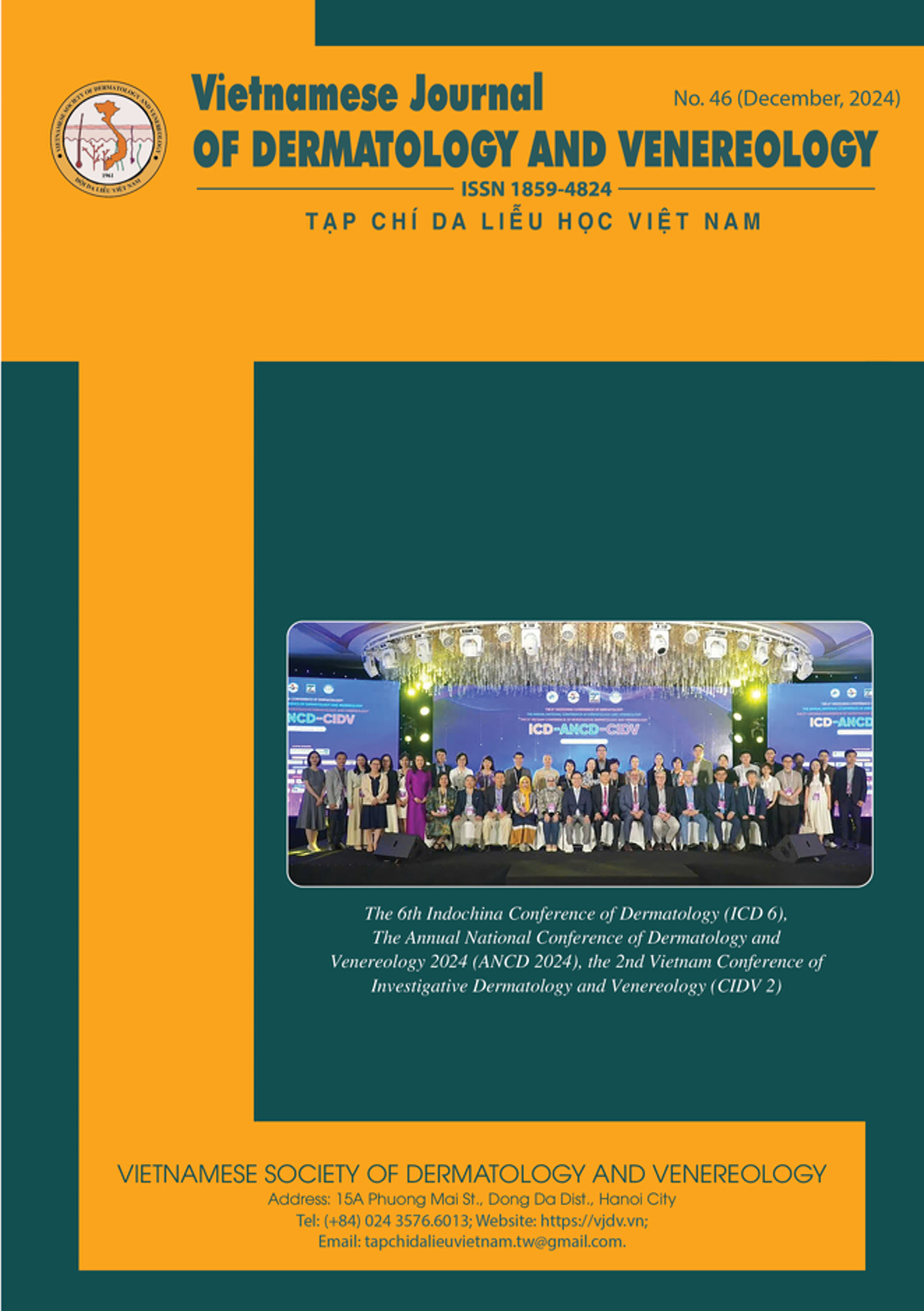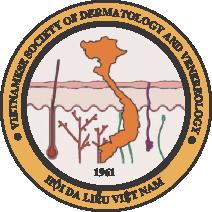EVALUATION OF THE MOSAIC 7 TEST FOR THE DIAGNOSIS OF IMMUNOBULLOUS SKIN DISEASE
DOI:
https://doi.org/10.56320/tcdlhvn.46.202Từ khóa:
autoimmune bullous diseases, Mosaic 7Tóm tắt
Objective: To determine the positive rate of the Mosaic 7 test in autoimmune bullous diseases at the National Hospital of Dermatology and Venereology.
Materials and methods: A cross-sectional retrospective study was conducted on 44 medical records and serology of patients with autoimmune bullous diseases at the National Hospital of Dermatology and Venereology from October 2021 to September 2022. Data collected included gender, age, diagnosis, histopathology results, indirect immunofluorescence, direct immunofluorescence, and Mosaic 7 test results.
Result: Of the 44 patients with autoimmune bullous diseases, 22 had pemphigus vulgaris, 5 had pemphigus foliaceus, and 17 had bullous pemphigoid. The Mosaic 7 test results varied among the different types of bullous diseases. In pemphigus vulgaris patients, the Mosaic 7 test showed a high positive rate on the esophageal well (90.9%), Desmoglein 1 well (95.5%), and Desmoglein 3 well (86.4%). In pemphigus foliaceus patients, the test showed a 100% positive rate on the esophageal and Desmoglein 1 wells, but 0% on the Desmoglein 3 well. In bullous pemphigoid patients, the positive rates varied across different wells of the Mosaic 7 test.
Conclusion: The Mosaic 7 test demonstrated high utility in diagnosing autoimmune bullous skin diseases, particularly in identifying Desmoglein 1 and Desmoglein 3 in pemphigus vulgaris. However, further studies with larger sample sizes are warranted to validate and refine the test's accuracy.
Received 10 April 2023
Revised 08 June 2023
Accepted 03 November 2023





